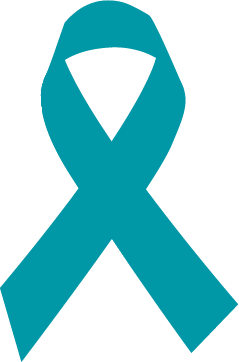
Tourette Syndrome
End has a disorder called Tourette Syndrome. This causes them to make uncontrollable noises and movements called 'tics'.This Carrd will walk you through some basic information about Tourette Syndrome, frequently asked questions about it, and what you may hear or see on streams because of it.
SIDE NOTE: End's content is not focused around education on Tourette Syndrome.
Basic Information
Tourette Syndrome (TS) is a neurological disorder that cause tics. Tics are misfired brain signals to the nervous system that can cause uncontrollable sounds, words, or any type of movement.Some tics may be simple (like sniffing noises) or complex (saying phrases) for both vocal and motor. Some of these can include coprolalia/praxia which is socially inappropriate phrases or movements!Tics can be triggered! People with tics can get triggered by other people with tics! Some of these triggers can include and are not limited to; movements/sounds that are similar to the tic, stressful situations, heightened emotions, repetitive actions of oneself or others, and more.
PLEASE NOTE: There is no way for us to control it! Asking to stop or suppress tics can make it worse!
Basic Vocabulary
TIC: Involuntary movements or sounds/words that can often be repetitive.
-
MOTOR (TIC): Any physical involuntary movement/action. (Ex: blinking, head jerking, hand movements, jumping, etc.)
-
VOCAL (TIC): Any vocal or sound related involuntary movement. (Ex: popping your lips, saying words/phrases, whistling, clicking your tongue, etc.)
-
COPROLALIA: Verbal tics that are deemed socially unacceptable. (swearing, slurs, sexual, etc.)
-
COPROPRAXIA: Physical tics that are deemed socially unacceptable. (Middle finger, inappropriately touching yourself or others, etc.)
-
ECHOLALIA: Verbal tics that repeat others. (Line from a movie, something your friend just said, etc.)
-
ECHOPRAXIA: Physical tics that repeat others. (movement someone just made, etc./see above)
How to react to tics
DISCLAIMER: ALWAYS ASK WHAT THE PERSON WITH TICS' BOUNDARIES ARE, THEY CAN VARY FROM PERSON TO PERSON!
• If the person with tics is laughing and/or has consented to it, laugh at funny tics! Tics that catch you by surprise! It typically makes us feel much more normal and less embarrassed. (Ofc, ask for consent first!)• If the person with tics is having self injurious tics, try to minimize damage.
• Make fun of someone's tics• Laugh AT the person who is ticcing• Purposefully trigger someone's tics• Restrain someone from ticcing (it can be physically painful and triggers more tics)
Frequently Asked Questions!
What does a tic feel like?
People with tic disorders describe an urge building up inside them before the tic appears. It is often met with relief after the tic is over. A tic urge is often explained as being similar to a yawn or an itch scratch even though it's a very unique feeling.—Can you cure tics and Tourette's syndrome?
There are no cure for it, only ways to decrease symptoms through medication or implants.—What are tic attacks?
The term ‘tic attack’ is often used to describe bouts of severe, continuous, non-suppressible and disabling tics which can last from a few minutes to several hours.—If I have tics, does that mean I have Tourette's?
Not everyone that has tics has Tourette syndrome. Tics are sudden recurrent non-rhythmic stereotypical movements or vocalizations that a person makes. Tourette syndrome is the condition of having both motor and vocal tics at some point, with tics lasting over one year and not remitting for more than three months. Tics typically change in presentation (location, type, and/or severity) over time. TS describes a condition that is not caused by another illness. The onset of symptoms is typically before 18 years of age.—Can people with tics control them if they want to?
People with tics can often hold them in for a very brief period, but doing so may result in a build-up of the need to perform the tic(s) and a subsequent outburst.—Does everyone with tics swear?
No. In fact, the phenomena called “coprolalia” and “copropraxia” are seen in only a small minority of people with Tourette syndrome. The media and entertainment industry have popularized the perception that these are critical components to the Tourette syndrome.—Does talking about your tics make them worse?
In most cases, it will bring up the person's tics, yes! For End, not often.—Do people with tics think about the tic and then tic it?
No. Tics can happen randomly and they may be associated with something such as stress, anxiety disorder, tiredness, excitement or happiness. They tend to get worse if they're talked about or focused on.
Any questions that are not listed on here, you can Google! There's more resources out there.
End and TS
End has both motor and vocal tics. Although they don't often have their camera on, you may hear shuffling or on occasion bonking into things. The vocal are more noticeable, and below you can find some of the common ones you may hear on stream.
- Humming- Repeating themselves- Stuttering- Whistling- Pops- Clicks- "Iphone opening" sound- "Brrrr" sound- Sharp exhale/sneeze-like sound
Occasionally you will hear phrases/words they say too, however most of the time it’s just sounds. Tics wax and wane, so some streams they may not be as active as others. Often when they are words it interrupts what End is currently saying. End may say “sorry” afterwords as a habit to indicate it’s a tic.
Please don't bring too much attention to these! It's just information for future reference if you hear them :]